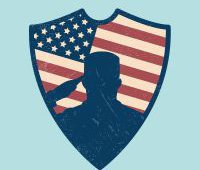Blog
Psychedelic ibogaine creates significant improvements in veterans’ chronic brain injury symptoms
A recent New York Times article has brought greater attention to the use of ibogaine, a psychedelic derived from the bark of iboga trees, as a growing treatment for US veterans suffering from symptoms of brain injury and PTSD.
Adverse effects of soccer heading found in the same location as CTE pathology
A study found a link between soccer players with “a higher level of heading” and brain abnormalities in regions where Chronic Traumatic Encephalopathy (CTE) pathology is most often found.
Cooling therapy reduces symptom burden in adolescent concussions
A study conducted by Matthew Smith et al. and published in The Clinical Journal of Sport Medicine found that, in adolescent athletes, cooling therapy was associated with a significant decrease in post-concussion symptoms.
Mouse model shows possibilities of reversing memory deficits after repeated mild head impacts
A study published in The Journal of Neuroscience found that in mice, memory loss after being subjected to a high frequency of mild head impacts was linked to a deficiency in synaptic plasticity rather than “a loss of neural infrastructure.” There is the possibility that “cognitive impairment caused by head impact” could be clinically reversed.
Brain injury associated with US Military training weapons
In a recent New York Times report, Dave Phillips brought attention to abundant evidence indicating that brain injuries and “serious and lasting harm” in veterans are related to their exposure to repetitive blasts from weapons used in training.































